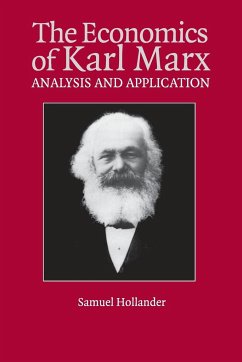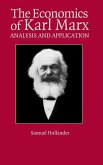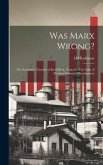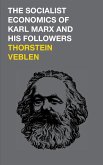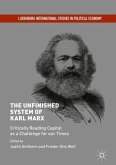Presents an account and technical assessment of Marx's economic analysis in Capital, with particular reference to the transformation and the surplus-value doctrine, the reproduction schemes, the falling real-wage and profit rates, and the trade cycle. The focus is on criticisms that Marx himself might have been expected to face in his day and age. In addition, it offers a chronological study of the evolution of that analysis from the early 1840s through three 'drafts': documents of the late 1840s, the Grundrisse of 1857-1858, and the Economic Manuscripts of 1861-1863. It also provides three studies in application, focusing on Marx's 'evolutionary' orientation in his evaluation of the transition to communism and his rejection of 'egalitarianism' under both capitalist and communist regimes; his evolving perspective on the role of the industrial 'entrepreneur'; and his evolving appreciation of the prospects for welfare reform within capitalism.
Hinweis: Dieser Artikel kann nur an eine deutsche Lieferadresse ausgeliefert werden.
Hinweis: Dieser Artikel kann nur an eine deutsche Lieferadresse ausgeliefert werden.
'This is vintage Hollander: beautifully written, highly opinionated and extremely well researched. It is the culmination of decades of scholarship on classical and post-classical political economy. Many readers will question Hollander's interpretation of Marx as an unsuccessful predecessor of Walras, but few will fail to be stimulated, or provoked, by this book.' John King, La Trobe University

